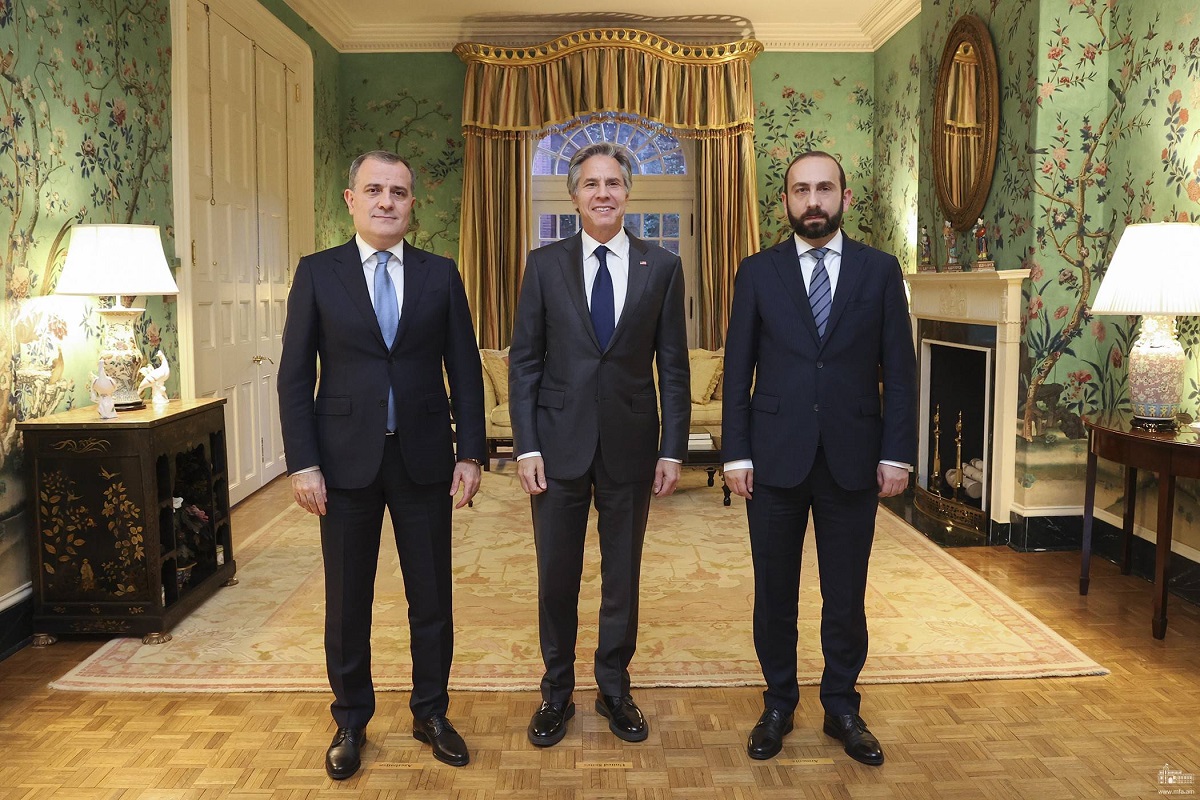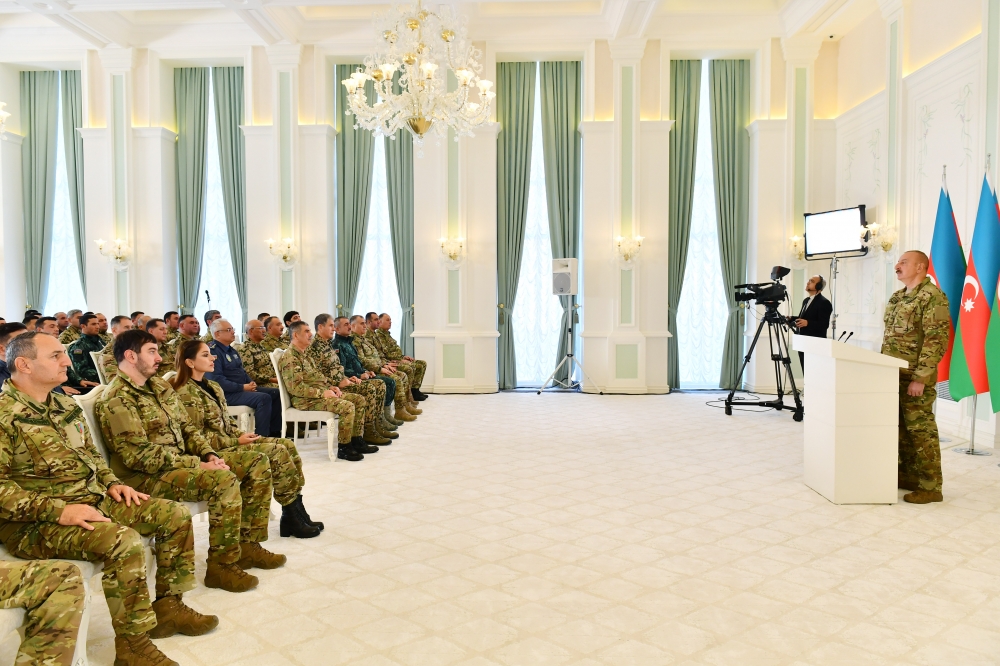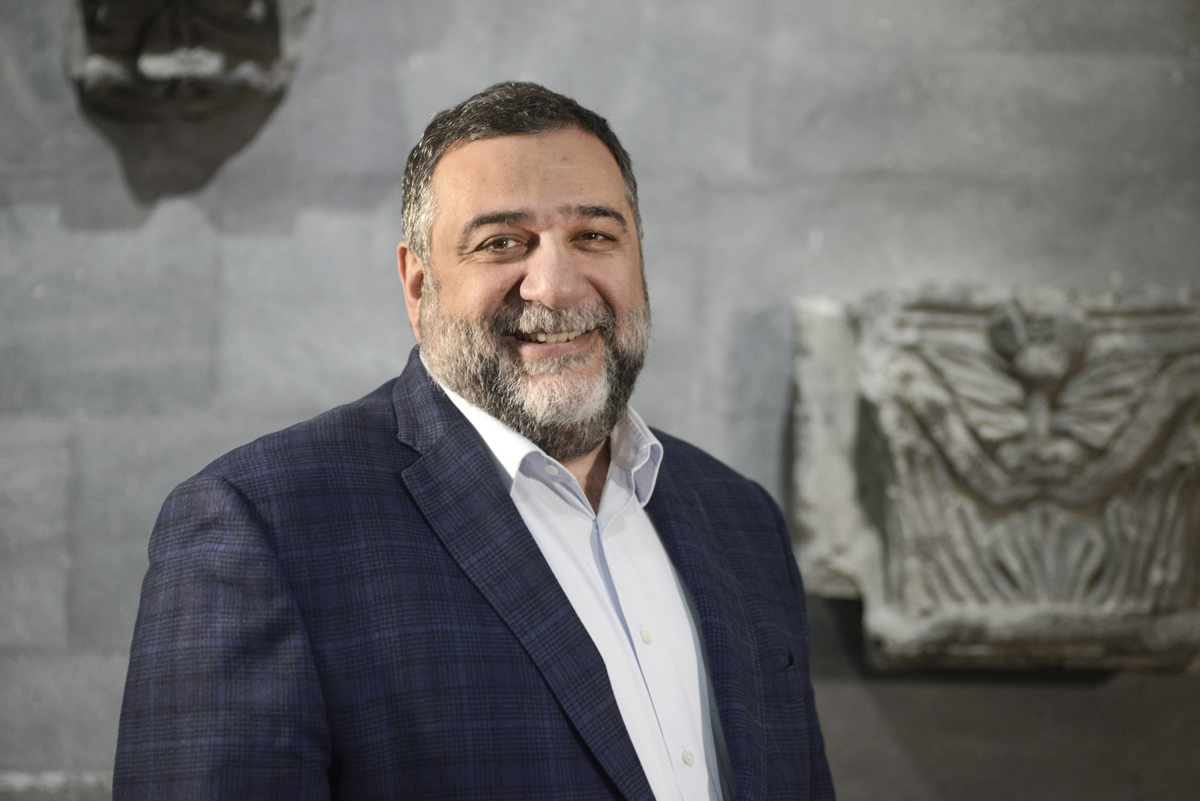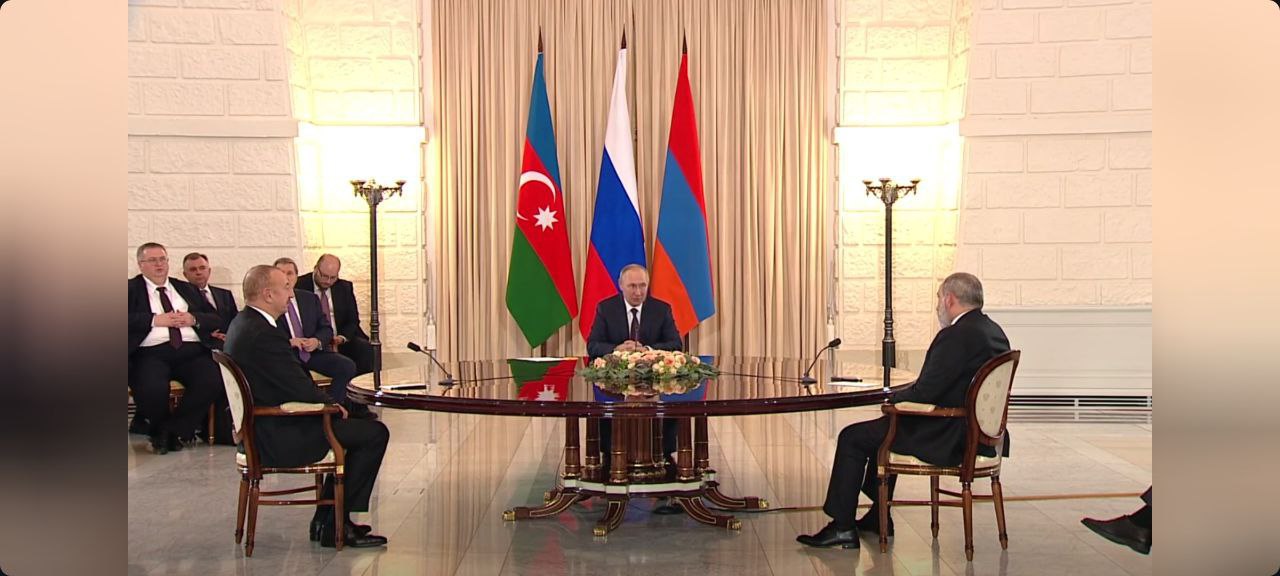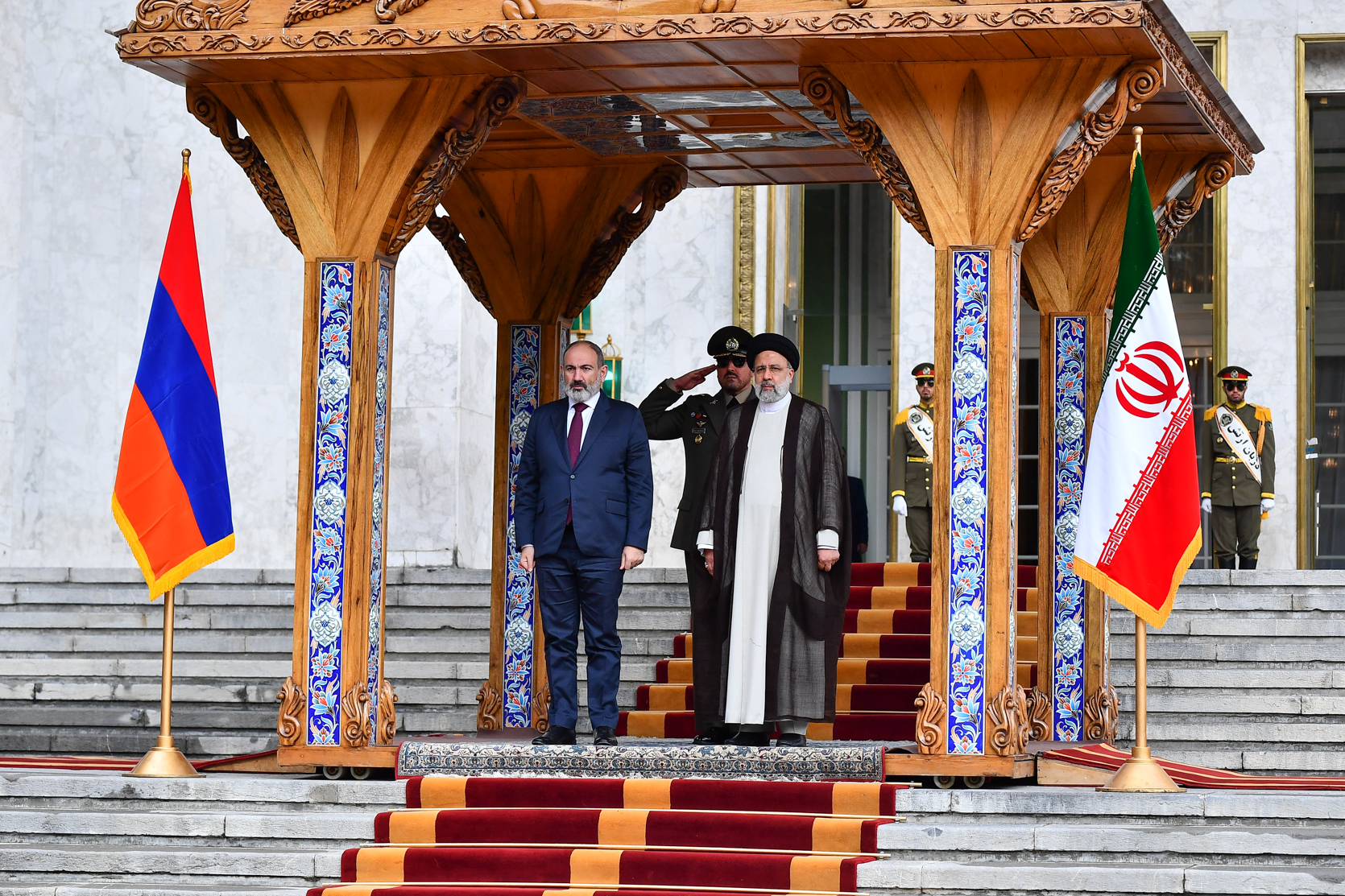“We cannot fight the whole world alone” – Nikol Pashinyan
Interview with Nikol Pashinyan
“Aliyev talks about the ‘promised corridor,’ but the Azerbaijani Foreign Ministry no longer uses this term, because the addressee of the message is also the international community,” Prime Minister of Armenia said on the air of the Public TV Company. He means the “Zangezur corridor”, which Azerbaijan demands and the Armenian authorities refuse to provide, referring to the trilateral joint statement of 2020 and indicating that there is no such clause nor “promise” therein. Pashinyan believes that the situation has changed as a result of his previous speech.
The prime minister believes it is important to understand the content of the accusations against Armenia, on which “Azerbaijan is trying to build the prerequisites for a new escalation.” If one delves into the essence of the agreements, “take an inventory”, then it will immediately become clear “who is not actually fulfilling them.”
In his next extensive interview with Channel One, Pashinyan talked about the most acute problems of Armenian-Azerbaijani relations, touched upon the future of Nagorno-Karabakh and the mandate of the Russian peacekeepers stationed there, the activities of the EU monitoring mission on the border with Azerbaijan and the position of Iran, and he effectiveness of the process of normalizing relations with Turkey.
The main points of the interview of the Prime Minister of Armenia.
- “The peace agenda does not mean the ‘peaceful extermination’ of Armenians” – Pashinyan
- “Staying with Russia is a greater risk for Armenia than alliance with the US.” Opinion
- Armenia and Azerbaijan peace treaty in Tbilisi: is it possible?
According to Pashinyan, this fact was recorded in two statements at once following the results of meetings with Aliyev – first in Prague, and then in Sochi, but in diplomatic language. They refer to the recognition of each other’s territorial integrity and sovereignty in accordance with the Alma-Ata Declaration of 1991:
“Azerbaijan’s invasion of the sovereign territory of Armenia is a fact”
“And if we mutually recognize the borders of 1991, we thereby conclude that Azerbaijan has occupied our territory. The border is not a theoretical phenomenon. We are talking about the administrative borders of the USSR.“
The Prime Minister stressed that he was raising the issue of the occupation of part of the country’s territories and the need for the withdrawal of Azerbaijani troops at all negotiations in Armenia. However, statements following the results of these meetings cannot be one-sided, because “flexibility is being shown.”
“Washington presented its version of the text of the peace agreement”
Pashinyan said that there are several options for a peace agreement, and it is possible to sign a framework or non-framework document.
He explained that the framework agreement means “moving forward without addressing all issues”, meaning leaving some things undone. And if this option is acceptable for Azerbaijan, then it is ready to sign it.
According to the Prime Minister, during the meeting in Washington Armenia presented its version of the text of the agreement:
“We hope that Azerbaijan will constructively discuss it and respond.”
In this case, before the end of the year it will be possible to sign a peace agreement:
“But before the peace treaty goes into effect, the delimitation process must be completed so that Baku does not have territorial claims, the borders would be finally clarified.”
According to the prime minister, an institution of international guarantees and guarantors is needed, otherwise the agreement will just be a meaningless piece of paper:
“If there are no international guarantors, and influential ones, it is theoretically and practically possible to sign a peace treaty — and in twelve hours a war will begin. And that’s not an exaggeration.”
Pashinyan said he was ready to discuss the issue of guarantees both with Russia and with the UN Security Council.
“Need communications or a reason to escalate?”
The prime minister, once again stated that no one can be more interested in choosing the best route for unblocking regional roads than Armenia. He stressed that in addition to ensuring transport between Azerbaijan and Nakhichevan, part of the cargo coming from the Caspian and Mediterranean seas will pass through this route.
“We want as many cars as possible to pass along this road, a lot of goods to be transported so that the Republic of Armenia receives more income. If it turns out that there is no special traffic, the road does not generate income, it will mean that we simply squandered the sums from the state budget.”
According to Pashinyan, the route should be short, convenient, and accessible at all times of the year. He also said that international experts were invited to determine the most successful and optimal route:
“If for Baku this is really a matter of roads, and not an excuse for escalation, then the issue is practically resolved.”
The prime minister said that they were going to present Baku with an even more simplified version of their previous proposal regarding the operation of checkpoints. Earlier Armenia proposed delegating border and customs services to international organizations, as Azerbaijan expressed concern about direct contacts between Armenian and Azerbaijani officials at the border.
“If we are going to establish a peace agenda in the region, it is not very correct to say that Azerbaijanis should not communicate with Armenians, or vice versa,” Pashinyan believes.
In his opinion, difficulties may arise but they can be overcome, for example with the help of courses organized by international structures. In addition, many procedures can be carried out using electronic tools if “the services of the two countries interact.”
Follow us – Twitter | Facebook | Instagram
“The demilitarization proposal will be the subject of discussion”
Pashinyan again spoke on the proposal to create a demilitarized zone around Nagorno-Karabakh, as well as on the Armenian-Azerbaijani border. He explained that this involves a mirror withdrawal of troops and the creation of a three-kilometer demilitarized zone:
“This means that army units must be withdrawn from this area, and border protection must be transferred to the border troops.”
This proposal from Armenia is heard not for the first time. According to Pashinyan, what is new here is that if earlier it was proposed that Russia carry out international monitoring, now the CSTO, the OSCE, the UN Security Council, and the European Union have also been added to the list.
“Peacekeepers cannot leave until there are security guarantees”
According to Pashinyan, in Sochi he stated that he was ready to sign a document on extending the term for the deployment of peacekeepers in NK, but there was no “mutual understanding” on this issue.
He believes that the presence of a peacekeeping contingent will not be in demand only if guarantees of the security and rights of the Armenians of Nagorno-Karabakh are created and verified:
“As long as there are no such clearly formulated guarantees, the peacekeepers simply cannot leave. And here’s why: the contingent was deployed along the line of contact between Nagorno-Karabakh and the Lachin corridor on the basis of a decision of the Federation Council of the Russian Federation. The resolution says that they are deployed to prevent and prevent massacres of the civilian population of Nagorno-Karabakh. If this threat is not eliminated, there must be peacekeepers there.”
Pashinyan believes that if the Russian Federation, for objective or subjective reasons, decides to leave Karabakh, it can do so only after creating additional guarantees. For example, Russia can apply to the UN Security Council with a statement that it has detected a threat, but “cannot or does not want to eliminate it.”
“We cannot endanger Armenia and Nagorno-Karabakh”
The prime minister said that there is no country that would not consider the Nagorno-Karabakh issue in the context of the territorial integrity of Azerbaijan, and he does not want anyone in Armenia to have “illusions” on this score.
To the question of Armenia’s final position on the matter, he stated: “Artsakh is Armenia, and that’s the point,” as he stated earlier, or “if Artsakh is part of Azerbaijan,” Pashinyan replied that “we must accept reality, no matter how painful and difficult it may be “.
“In this situation, if we do not want to endanger Armenia and Artsakh, we should not fight the whole world alone because we cannot. We must assess the situation and form a clear, feasible plan for how we solve the problem.
“Foreign Forces Worrying Iran Are Not in Armenia”
Pashinyan highly appreciated the presence of the EU monitoring mission on the border between Armenia and Azerbaijan. Answering a question about violations of the ceasefire after the arrival of the observers and their reaction to these facts, the prime minister stressed that the EU mission is not on the border to “make statements every day”, and anyway are not monitoring the ceasefire:
“Following the results of their activities, they must draw deeper conclusions and bring them to the international community, as well as to those involved in the delimitation process. I am sure that their conclusions will be objective.”
In connection with the Iranian President’s statement about the undesirability of the presence of foreign forces in the region, the Prime Minister stressed that the West has always been present in Armenia in the form of embassies, missions and investments. And he hopes that the explanations provided to Iran on this issue were “enough”:
“I don’t think the presence of EU civilian monitors worries Iran. I have the impression that Iran is alarmed by the presence of other actors, and they are not in Armenia at all.”
“The statements of Yerevan and Ankara are not incompatible”
The Prime Minister of Armenia was left with positive impressions from the first contacts with the President of Turkey — both a telephone conversation and a personal meeting. He says that the statements made were not incompatible, which means that the normalization of relations is possible:
“However, this does not mean that we or Turkey have abandoned any of our positions.”
According to him, there are two approaches:
- regard the problem as unsolvable, or
- inventory basic information, update it, and notice that there are even small, but theoretical possibilities.
Pashinyan says that normalization of relations with Turkey is carried out “without preconditions”, but it is clear to everyone that “Azerbaijan is also present in the dialogue.”
During the meeting with Erdogan, he tried to imagine how Turkey’s position is perceived in Armenia, and to understand what the situation is in Azerbaijan and Turkey.
“High-ranking Turkish officials are making statements that speak of a new position. Recently I noticed that the presidential press secretary focused on the issue of the rights and security of the Armenians of Nagorno-Karabakh, which is very important,” the prime minister said.
Baku and Ankara have the closest relations and everyone knows this, Pashinyan says, but at the same time he “does not know what Turkey’s approach will be if it becomes obvious to everyone that Azerbaijan is simply hindering the Armenian-Turkish resolution process.”
Interview with Nikol Pashinyan










